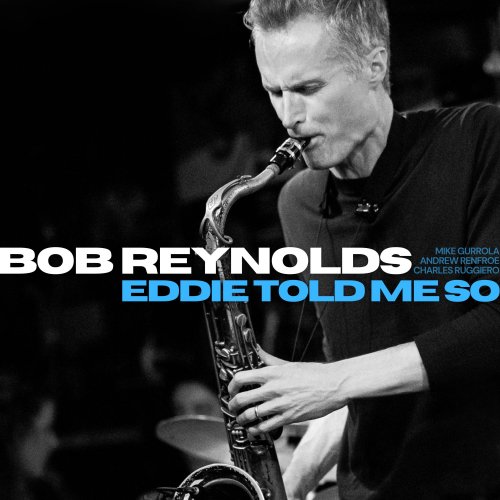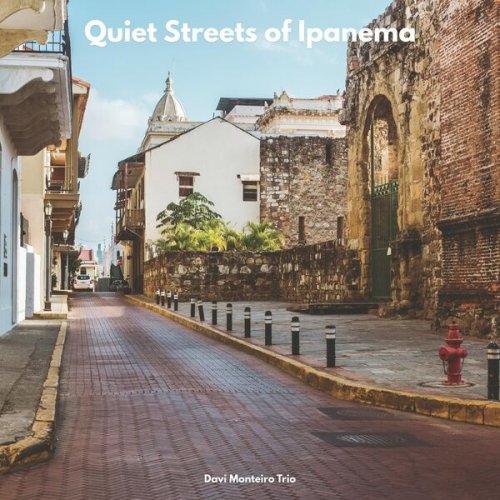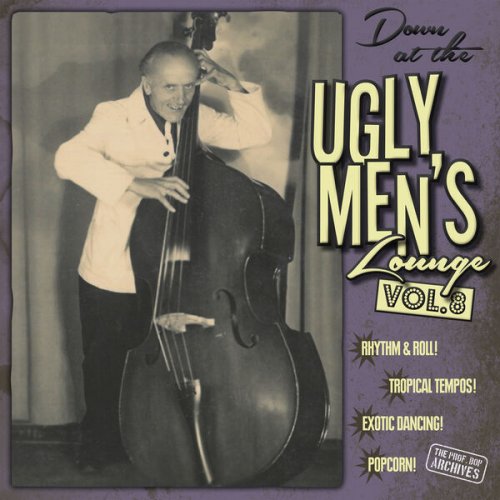Ensemble 28, Daniel Grossmann - Beethoven: Symphony No. 3 in E flat major, Op. 55 'Eroica' (2013)
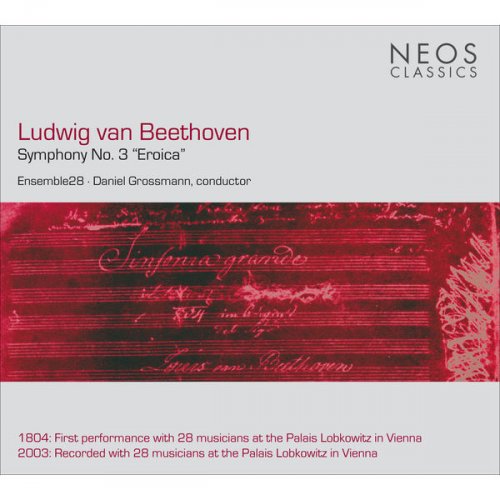
Artist: Ensemble 28, Daniel Grossmann
Title: Beethoven: Symphony No. 3 in E flat major, Op. 55 'Eroica'
Year Of Release: 2013
Label: Neos
Genre: Classical
Quality: FLAC (tracks)
Total Time: 44:23
Total Size: 209 Mb
WebSite: Album Preview
Tracklist: Title: Beethoven: Symphony No. 3 in E flat major, Op. 55 'Eroica'
Year Of Release: 2013
Label: Neos
Genre: Classical
Quality: FLAC (tracks)
Total Time: 44:23
Total Size: 209 Mb
WebSite: Album Preview
Symphony No. 3 in E flat major, Op. 55, 'Eroica' (Ludwig van Beethoven)
01. I. Allegro con brio - 00:16:31
02. II. Marcia funebre. Adagio assai - 00:11:15
03. III. Scherzo. Allegro vivace - 00:05:50
04. IV. Finale. Allegro molto - 00:10:47
Performers:
Ensemble 28
Daniel Grossmann
This is not a stunt. It is true that Beethoven premiered the Eroica with what he thought was a formidable ensemble consisting of 28 players, so in fact the appropriately named Ensemble 28 is just the right size for the work. But, even in these post-period instrument days, the very idea of having the Eroica performed with only eight violins -- two each of violas, cellos, and basses -- pairs of winds and trumpets, plus a trio of horns and tympani when double or triple that is the norm does at first seem rather like a stunt.
But listen to it! Under the direction of young German conductor Daniel Grossmann, Ensemble 28 performs the Eroica with unimaginable energy and unbelievable intensity. Its sound is lean and tight, its tone is strong and supple, its enthusiasm is immense and infectious. The group surges through the opening Allegro con brio, races through the Scherzo, and rides the closing Allegro molto to triumph. Some listeners might object that Grossmann's tempo of the "Marcia funèbre" is perhaps too quick for an Adagio assai. But while the movement's sense of massive monumentality may be slightly diminished, its feeling of great-hearted grandeur is enormously increased. And, moreover, a faster "Marcia funèbre" fits better with the rest of Grossmann's irresistibly driven interpretation. While this shouldn't be the first or even the 10th Eroica one should hear -- try Furtwängler's, Toscanini's, Walter's, Klemperer's, Kleiber's, and Szell's, then Karajan's, Solti's, Abbado's, and maybe Bernstein's -- but anyone who loves the work and knows it by heart will want to hear this recording. Preiser's 2004 digital sound is big, bright, and brilliant.
But listen to it! Under the direction of young German conductor Daniel Grossmann, Ensemble 28 performs the Eroica with unimaginable energy and unbelievable intensity. Its sound is lean and tight, its tone is strong and supple, its enthusiasm is immense and infectious. The group surges through the opening Allegro con brio, races through the Scherzo, and rides the closing Allegro molto to triumph. Some listeners might object that Grossmann's tempo of the "Marcia funèbre" is perhaps too quick for an Adagio assai. But while the movement's sense of massive monumentality may be slightly diminished, its feeling of great-hearted grandeur is enormously increased. And, moreover, a faster "Marcia funèbre" fits better with the rest of Grossmann's irresistibly driven interpretation. While this shouldn't be the first or even the 10th Eroica one should hear -- try Furtwängler's, Toscanini's, Walter's, Klemperer's, Kleiber's, and Szell's, then Karajan's, Solti's, Abbado's, and maybe Bernstein's -- but anyone who loves the work and knows it by heart will want to hear this recording. Preiser's 2004 digital sound is big, bright, and brilliant.
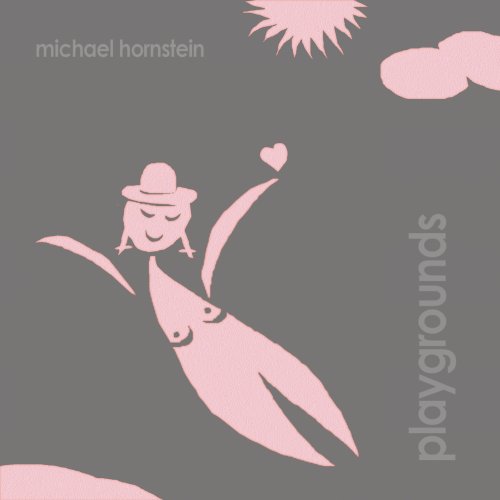


![William Ackerman - Past Light (1983) [1997 Japanese Edition] William Ackerman - Past Light (1983) [1997 Japanese Edition]](https://www.dibpic.com/uploads/posts/2026-02/1771702726_001.jpg)
![Tom Braxton - Flashback (2026) [Hi-Res] Tom Braxton - Flashback (2026) [Hi-Res]](https://www.dibpic.com/uploads/posts/2026-02/1771426129_1.jpg)
![Bill Champlin - Through It All (1994) [Japanese Edition] Bill Champlin - Through It All (1994) [Japanese Edition]](https://www.dibpic.com/uploads/posts/2026-02/1771699229_ff.jpg)
